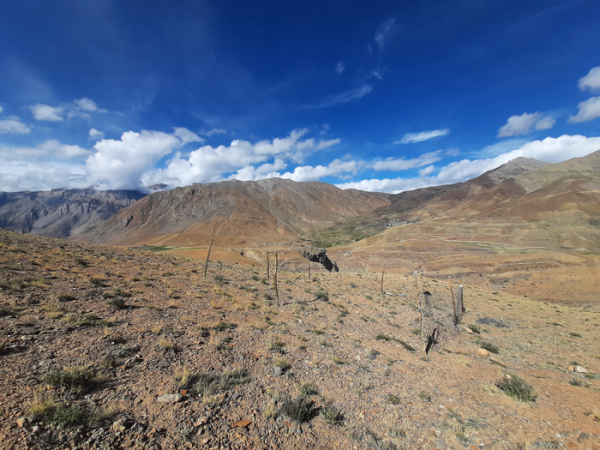Large mammalian herbivores like the yak and ibex play a crucial role in stabilising the pool of soil carbon in grazing ecosystems such as the Spiti region in the Himalayas, according to a 16-year-long study carried out by researchers at the Centre for Ecological Sciences (CES) and the Divecha Centre for Climate Change (DCCC), Indian Institute of Science (IISc).
Experimental removal of grazing by herbivores from such ecosystems was found to increase the fluctuations in the level of soil carbon, which can have unintended negative consequences for the global carbon cycle.
Since soil contains more carbon than all plants and the atmosphere combined, it is important to ensure its persistence. When plants and animals die, dead organic matter remains in the soil for a long duration before microbes break it down and release carbon into the atmosphere as carbon dioxide. “The soil pool is a reliable sink for trapping carbon,” explains Sumanta Bagchi, Associate Professor at CES and senior author of the study published in the Proceedings of the National Academy of Sciences. Maintaining stable levels of carbon in the soil is therefore key to offsetting the effects of climate change.
Read more at: Indian Institute of Science
Long-term field experiment in the high-altitude Himalayan desert ecosystem in Spiti, Himachal Pradesh (Photo Credit: Dilip Naidu)


